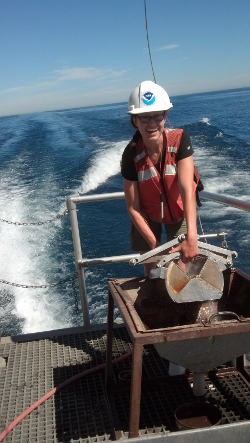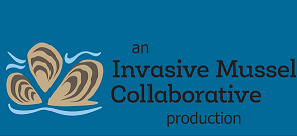 Ashley Elgin, Research Ecologist
Ashley Elgin, Research Ecologist231-755-7699
ORCiD
Google Scholar profile
Publications & Presentations

Strategy to Advance Management of Invasive Zebra and Quagga Mussels
Ashley K. Elgin
Dr. Elgin studies the benthic, or bottom, environment of the Great Lakes, which supports a diversity of organisms. However, invasive dreissenid mussels (introduced in the 1980’s), comprise more than 95% of benthic biomass in all lakes except Superior. Dr. Elgin conducts lab and field experiments to better understand dreissenid growth and reproduction. Dr. Elgin maintains GLERL’s long-term benthic monitoring program, which is focused on annual surveys of Southern Lake Michigan. She also contributes to whole lake benthic surveys in conjunction with the Cooperative Science and Monitoring Initiative 5-year research cycle. The impact of invasive species on native communities has been the common thread throughout Elgin's research career, starting with studying green crabs in the Gulf of Maine, then rusty crayfish in the Upper Midwest, and now dreissenid mussels. Dr. Elgin has a deep connection to the Great Lakes, having lived within 50 miles of all five. Also, her great-great-great-grandfather was a schooner captain and lighthouse keeper on Lake Michigan and her great-grandfather on the other side of the family was a coal passer and fireman on Great Lakes freighters.
Education:
PhD University of Notre Dame, Aquatic Ecology
MA Smith College, Marine Biology
BS Michigan Technological University, General Biology
Research Interests:
Aquatic invasive species, dreissenid mussels, benthic community composition, limnology
see all NOAA GLERL researchers
see all NOAA GLERL staff and affiliates


